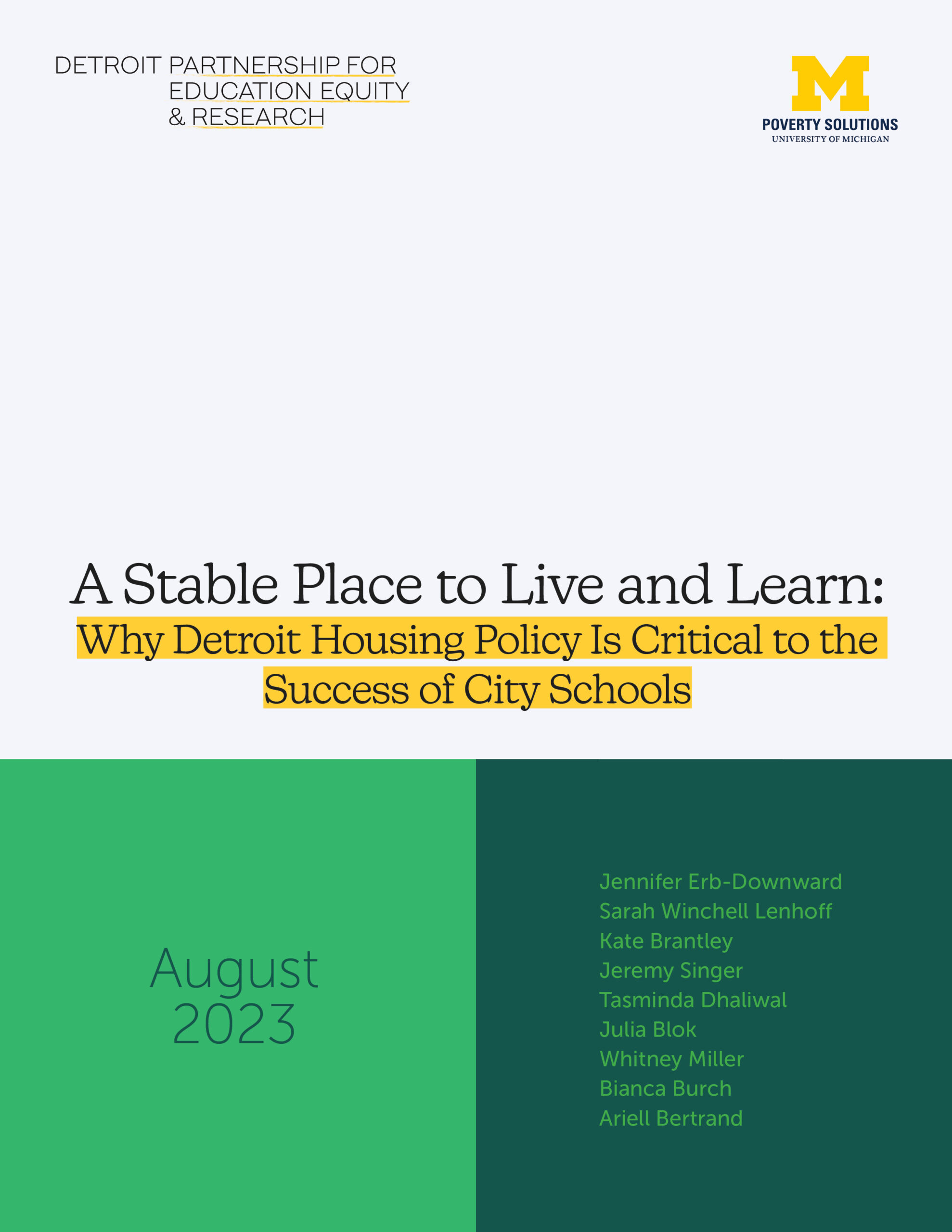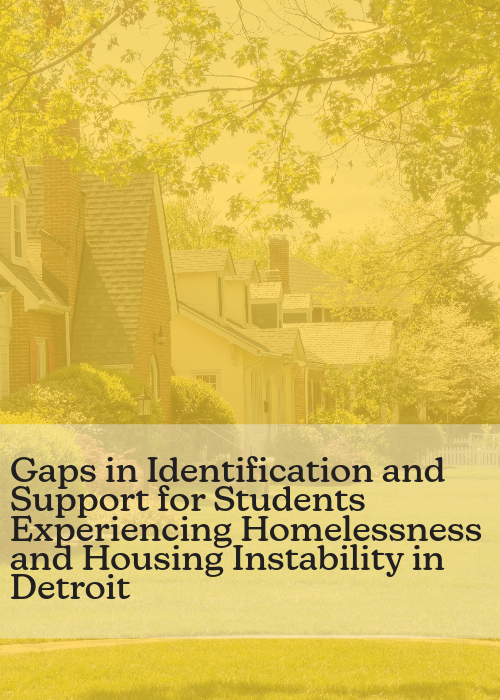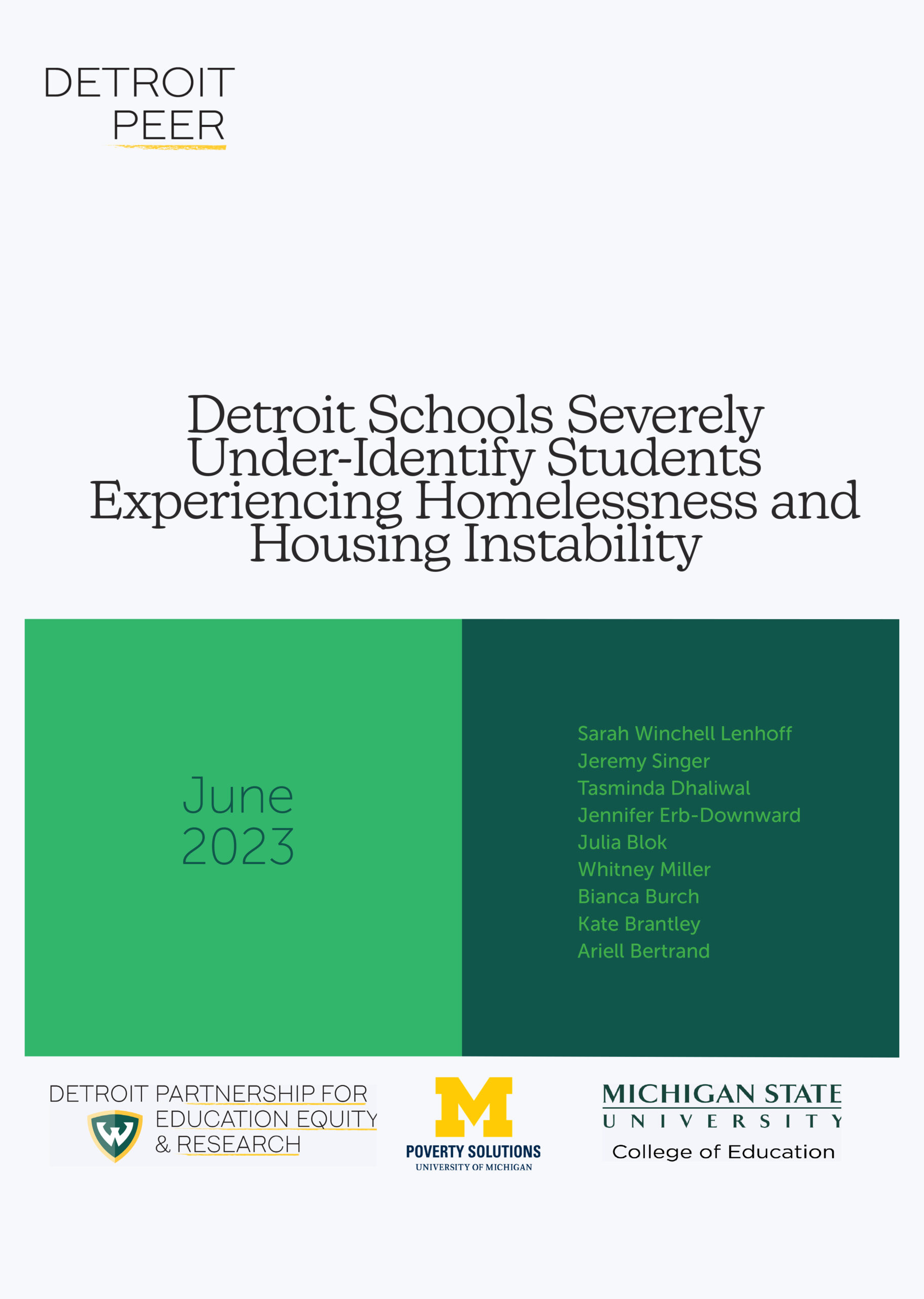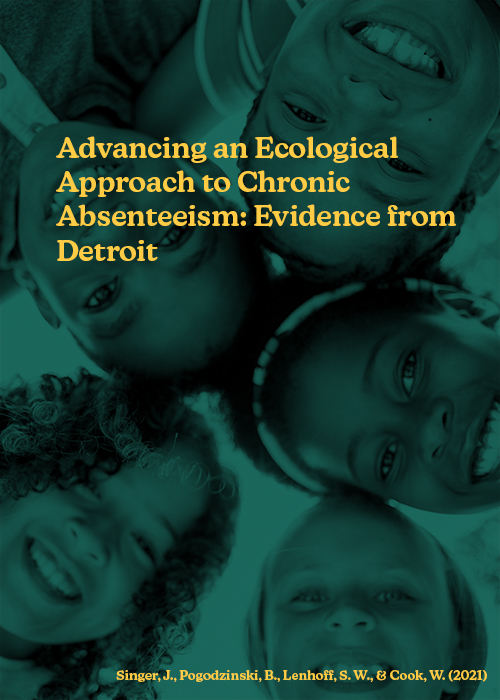Topic: Housing
A Stable Place to Live and Learn: Why Detroit Housing Policy Is Critical to the Success of City Schools
This report was made in collaboration with Poverty Solutions at UM. It was created in order to better understand opportunities to address housing instability among Detroit’s families in a manner that meets the educational needs of children. This brief analyzes interviews with 20 parents identified as homeless or housing unstable and the responses of more than 1,400 Detroit parents who responded to a January 2022 survey conducted by Wayne State University’s Detroit Partnership for Education Equity & Research (Detroit PEER). Themes are discussed and policy recommendations based on innovations in other cities are presented.

Gaps in Identification and Support for Students Experiencing Homelessness and Housing Instability in Detroit
Homelessness and housing instability can have significant negative effects on students’ academic and behavioral outcomes. Schools that endeavor to support students who are experiencing housing instability can only do so if they accurately identify students facing these challenges. This mixed-methods study provides deep, contextualized data on the experiences of housing unstable youth and families in Detroit traditional public and charter schools, whether and how they are identified as housing unstable by their districts, and what schools are doing to support them. We find that 16% of Detroit students were housing unstable in 2021-22, but Detroit schools only identified 4% of students as homeless under the McKinney-Vento Act. Our qualitative data suggest that this undercount is predominantly related to parents’ feelings of stigma and shame associated with discussing their situation with their schools and in some cases a lack of follow-through when parents do divulge their housing issue. Housing unstable students who were not identified by their districts as such were more likely to have been suspended; identification was not associated with attendance or student mobility, compared to other housing unstable students.

Why Students Miss School and What You Can Do About It – DPSCD Principal Academy, 2023
Our presentation for the 2023 DPSCD Principal Academy on the complex and intersecting causes of chronic absenteeism within Detroit schools. Included are policy recommendations for how to best support families and students in efforts to improve attendance.

Detroit Schools Severely Under-Identify Students Experiencing Homelessness and Housing Instability
In this policy brief in partnership with Poverty Solutions at UM and MSU's College of Education, we provide clear evidence that Detroit schools under-identify students experiencing homelessness and housing instability, and we identify ways that schools and districts can improve identification.

The State of Detroit Schools, Students, and Families
This presentation was given in a series of State of the Schools events organized by our partner 482Forward.

Neighborhoods, Community Development, and Attendance
This presentation for the Strategic Neighborhood Fund's Workgroup focused on the connection between neighborhood conditions and access to education through enrollment and attendance.

The Missing Link: Housing Instability and Chronic Student Absenteeism
This presentation for CDAD's Community Development Week highlighted the connections between family housing instability and student absenteeism.

Economic and Educational Opportunity in the Context of Neighborhood Change
Children growing up in segregated and under-resourced neighborhoods and schools have continuously faced structural inequities resulting in worse educational and economic outcomes. In highly segregated and under-resourced neighborhoods, one way that educational inequality persists is through inequitable access to resources and information through social networks. Federally sponsored housing programs have sought to address these inequities by disrupting concentrated poverty and racial segregation in neighborhoods, but one challenge of such programs has been their primary focus on housing, neglecting other neighborhood conditions and social resources. HUD’s Choice Neighborhoods Initiative (CNI) was established to address these prior limitations by strengthening community social cohesion through cross-sector collaborations. Prior research has demonstrated that social networks – one’s relationships and connections with others – could be a key driver of upward mobility for Black low-income youth. However, few studies have empirically explored how neighborhood interventions might expand or deepen the social connections of youth in ways that reduce inequality in educational opportunities. This study aims to describe and clarify the mechanisms through which a major federal housing initiative can reduce educational inequality for Black low-income youth by transforming their social networks. A second aim of this study is to examine whether key components of the CNI are implemented in ways that connect housing and school sectors to disrupt segregation, foster neighborhood and school integration, and empower residents, particularly low-income Black residents, to shape policy enactment.

Advancing an Ecological Approach to Chronic Absenteeism: Evidence from Detroit
Drawing on ecological systems theory to study chronic absenteeism, the authors identify the association between student, neighborhood, and school factors and chronic absenteeism in Detroit, as well as between macro-level structural and environmental conditions and city-wide chronic absenteeism rates in large U.S. cities. The authors’ findings suggest the need for coordinated, ecosystemic policy interventions that address structural and environmental barriers to attendance along with school-based efforts that more immediately support students and their families.



